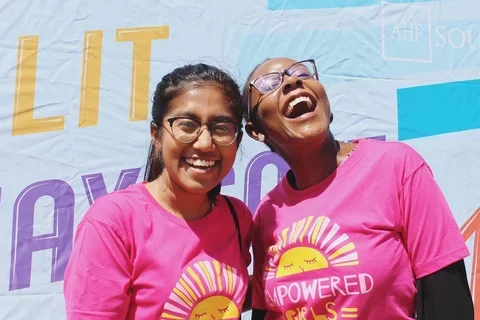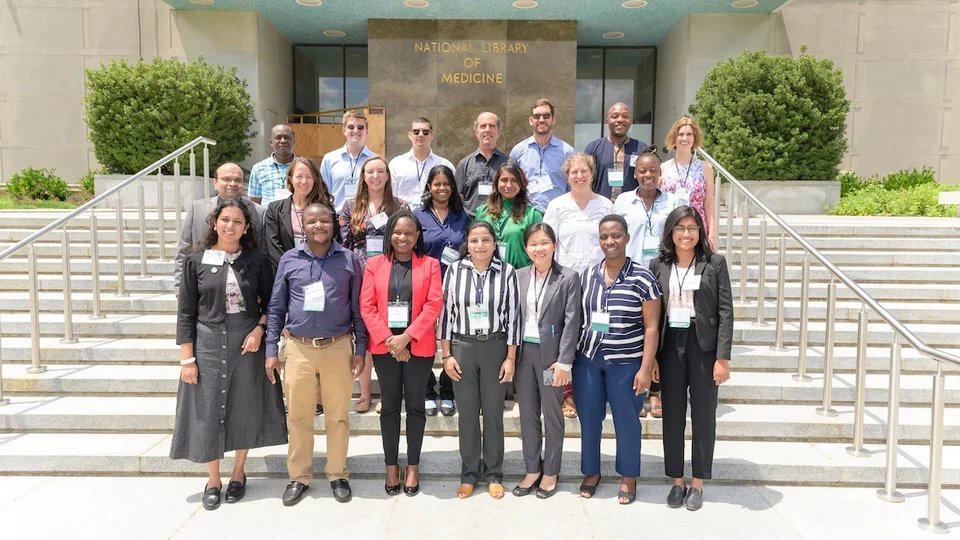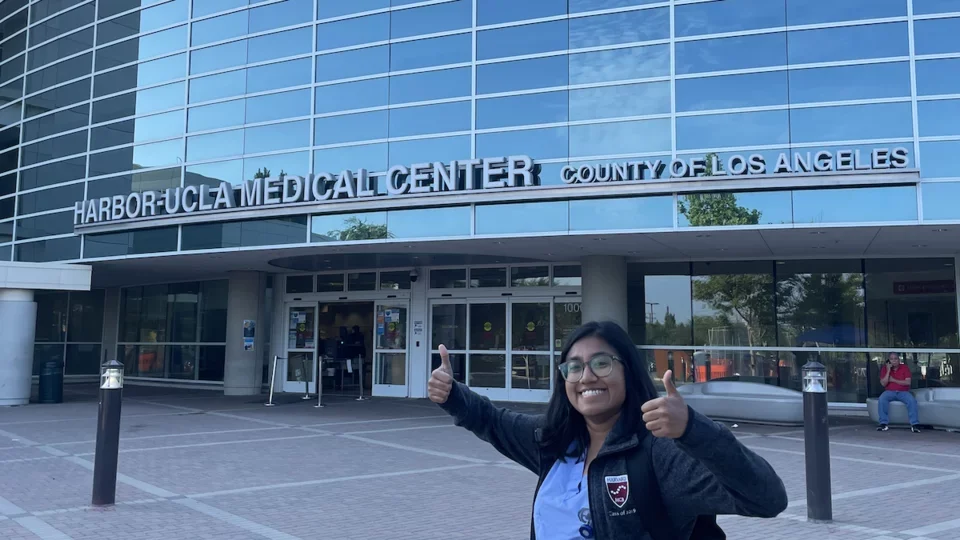Harnessing Research to Improve Sexual Healthcare Access
Student Spotlight

Meet Nafisa Wara
Medical student Nafisa Wara grew up in Boston, Massachusetts. Before settling in the United States, her family lived in places around the world, including Japan and Bangladesh.
As a kid, Nafisa found her first academic love in science. She conducted her own experiments and enthusiastically informed everyone what she’d learned from her results.
“I think a lot of it stemmed from being raised by folks who prioritized learning and inquiry—asking questions, being curious about the world around you,” she says.
Her mother supports learners with disabilities and her father conducts research on cardiology and metabolism. Nafisa says they both embodied the inquisitiveness they encouraged in her.
Nafisa’s science-centered curiosity led her to Harvard University, where she completed her undergraduate studies in molecular and cellular biology. She fed her passion for research in various labs and uncovered a new interest while working as a sexual health peer educator.
During regular office hours held in dining halls around campus, she offered safer sex supplies and informational brochures. Students could stop by her table and ask her absolutely anything. She counseled them on safer sex practices, cleared up misconceptions, and pointed out readily available resources.
“It was an opportunity to play an important role at a pivotal point in someone’s life, when they’re away from home for the first time and making independent decisions about their well-being.
By empowering young adults to make informed and independent health decisions, Nafisa found a cause to champion for life.
Fun fact: Nafisa loves music and has been singing in different choirs and acapella groups since she was about ten years old. (She’s also the proud owner of two ukuleles.)
From the Lab to South Africa
Exploring her budding interest in the field of sexual health, Nafisa minored in global health and global health policy. Her classwork focused on international inequities in healthcare, including sexual health access.
The nuance involved in correcting global inequities in sexual health appealed to Nafisa’s inquisitive nature. The end goal required considering myriad factors—-including age, geographic location, culture, and religion—that inform what people know about their bodies and what they need.
Nafisa earned a Harvard Postgraduate Public Service Fellowship that took her to Durban, South Africa. She worked closely with mentors from Massachusetts General Hospital and the AIDS Healthcare Foundation to develop programs aimed at improving access to sexual health services in the KwaZulu-Natal (KZN) province.
“Our work combined all my loves: science, research, and sexual health,” Nafisa says.
Their studies focused on young women disproportionately at risk for acquiring human immunodeficiency virus (HIV) due to long-standing institutionalized poverty, gender barriers to healthcare, and other sociocultural factors.
“We studied existing programs and piloted new initiatives that would meet people where they were in terms of sexual health knowledge and physical access to health services,” she says, adding that one program offered services in hair salons.
The fellowship allowed Nafisa to apply concepts she’d been researching in labs toward improving healthcare delivery for real people. Working one-on-one with infectious disease doctors and directly interacting with the populations she wanted to serve gave her a full-circle view of research.
“The fellowship cemented my desire to become an infectious disease doctor and spend my career focusing on ways to harness research to improve sexual healthcare delivery across the world.”

Connecting with UCLA HIV Prevention Experts
Nafisa remembers a pivotal moment in her journey to medical school. She was still in South Africa for her fellowship when encouraging new data came out about PrEP (pre-exposure prophylaxis). The injectable form could prevent HIV transmission as effectively as the more popular pill.
The news gave healthcare practitioners focused on improving access to prevention resources cause for celebration. The PrEP injection, administered every eight weeks, offered a convenient alternative to the daily pill, which could be hard for patients in underserved areas to manage.
“The study was run by an infectious disease doctor at UCLA,” Nafisa says. “I wanted to be around these pioneers in the field of HIV prevention.”
She reached out to Risa Hoffman, MD, who was then directing the Global Health Program (GHP) at the David Geffen School of Medicine at UCLA (DGSOM), to pitch projects designed to get the injection to people who needed it as soon as possible.
GHP leadership loved her ideas. Nafisa began working on projects with UCLA faculty, including her mentor Dvora Joseph Davey, PhD, MPH, the summer before she started medical school. They surveyed pregnant and postpartum individuals throughout South Africa to gauge their interest in the injection versus the pill. The most actionable insights came from asking follow-up questions to understand the “why” behind their answers.
After developing a comprehensive understanding of the counseling necessary to make patients comfortable about the injection, the team talked to local healthcare providers, layering their perspectives into an informed roll-out plan.
Working with faculty members who listened to her ideas and prioritized her development as a research scientist made Nafisa feel certain UCLA was her place. She matriculated at DGSOM in 2021.

Meeting Patients Where They Are
As a Fogarty Global Health Fellow, Nafisa will study in South Africa through her DGSOM Discovery year, a third-year DGSOM medical school curriculum requirement that provides protected time for a substantive creative and scholarly experience in an area of interest.
She’ll be partnering with community members in Cape Town to develop a decision support tool to help pregnant and postpartum people identify the best PrEP method for them.
In this project, Nafisa will continue developing and expanding her capacity to meet people where they are—a commitment she’s solidified while learning and training in Los Angeles.
The city’s diverse patient population, combined with DGSOM’s extensive hospital affiliations, offers varied clinical training opportunities. Nafisa’s had the opportunity to provide care to all kinds of people experiencing all kinds of medical issues.
“In my career as a physician, I want to be able to provide healthcare to anyone who walks through the door and also tailor services to what they need.”



